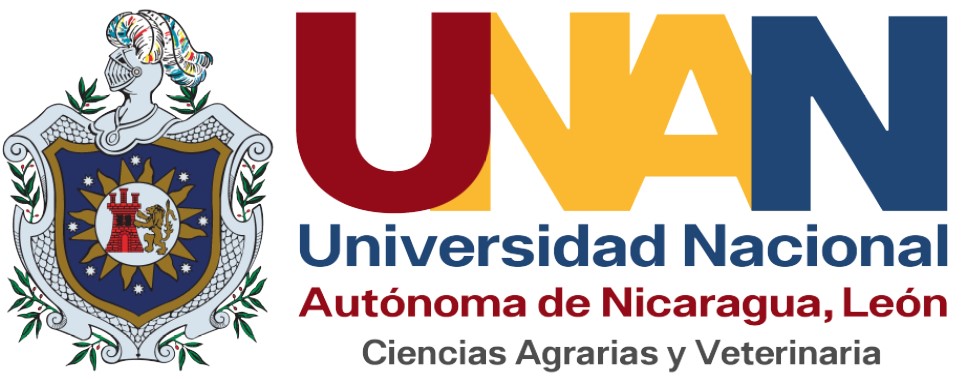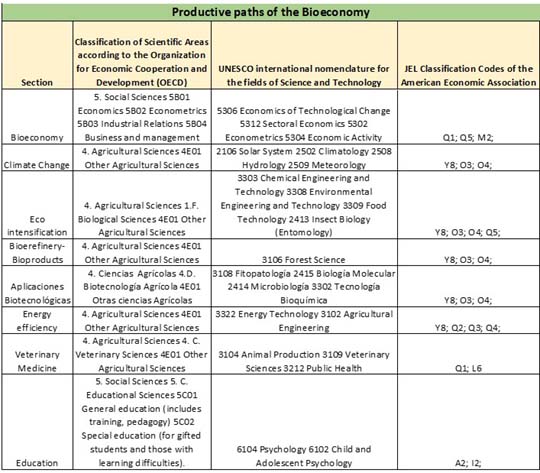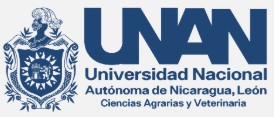
About the Journal
Presentation
Focus and scope
The Ibero-american Journal on Bioeconomy and Climatic Change (REV.IBEROAM.BIOECON.CAMBIO CLIM.), is a semi-annual online publication in continuous modality edited since July 2015 administered by the National Autonomous University of Nicaragua, León (UNAN-León) / Knowledge Area of Agrarian and Veterinary Sciences / Specific Direccion of Agroecology / Unit for Research in Bioeconomy and Climate Change (CRByCC). The journal is anchored in UNAN Leon. It is a non-commercial open-access journal. Its periodicity is semi-annual in the continuous modality.
The journal publishes research, reflection, and review articles, short articles, and case reports on various thematic areas of the primary sector and education in rural development (multidisciplinary), written in Spanish and English, especially by researchers from Iberoamerica. Contributions submitted to the journal must be original and unpublished. This journal offers researchers in Agricultural Sciences, Climate Change, Bioconomy, Rural Education, and the like, a space to publish the results of their research. The Journal is non-commercial open access, this means that it does not charge for the reception and publication of articles. It is aimed at the entire scientific community of the primary sector, especially Iberoamerica. Authors can locate their research topics by Section Policies. Next, we present the sections according to the areas of knowledge in UNESCO, JEL Classification Code, and OECD.

Vision: It aspires to be a means of academic and professional communication for the university community and the general public, on research topics in the area of agricultural and veterinary sciences and strengthen knowledge management in the new epistemology of Bioeconomics and Climate Change focused on education in rural development.
Mission: To promote research in the field of Agricultural and Veterinary Sciences, to develop knowledge management in the Bioeconomy and Climate Change in the rural development education, developing competent professionals, capable of demonstrating scientific knowledge of the bioeconomy as a new epistemology of knowledge in conditions adverse population growth and climate variability.
Goals:
1. Publish and disseminate the research work carried out by the teaching staff and students of the Faculty of Agrarian and Veterinary Sciences and your research centers.
2. Publish the research work carried out by the members of the Bioeconomy and Climate Change Network and the institutions associated with the network.
3.- Promote scientific work in national and foreign authors in the field of Agrarian and Veterinary Sciences and Rural Development Education.
4. Disseminate information produced for national and international scientific congresses, conferences, meetings and symposia, and any scientific event in order to give to know the research results on rural development education focused on Bioeconomics and Climate Change.
Target Audience: The journal is aimed at professionals, teachers, students, and researchers who are interested in updating their knowledge through the results obtained in research projects in the different areas of Agrarian and Veterinary Sciences and Rural Development Education.
A brief history of the Journal
Journal History
The Iberoamerican journal of Bioeconomics and Climate Change was born in 2014, as a product of the CYTED Network of Bioeconomics and Climate Change (REBICAMCLI), with the aim of disseminating research on the topic of Bioeconomy and Climate Change as a New Epistemology of the Economy where the productive paths focused on the variations of climate change are considered. It is an initiative administered by the Colegio de Postgraduados de México with the leader of the LPI 8 of the Tabasco Campus and UNAN León with the Center for Research in Bioeconomy and Climate Change. The REBICAMCLI Network is made up of the research centers EFIUCO Spain, CATIE Bolivia, the UES of El Salvador, UNAN Léon and INETER for Nicaragua, the CURLA of Honduras, the College of Postgraduates of Mexico, the CIEDA of the UCR Costa Rica, Colombia, Cuba with the ITG. For more information visit the Web http://rebicamcli.unanleon.edu.ni/.
Arbitration system
Peer review process
Each document will be refereed with external peers and with a type of blind peer review online by at least two experts (as) designated (external reviewers) by the Academic Editor. Only original and unpublished writings in Spanish or English are accepted and that have not been proposed in other journals and that their evaluation is in progress. Strict peer review: A careful selection will be made for relevance and importance. The two evaluation and support bodies, the Editorial Board and the International Scientific Committee (see inside cover) have recognized world-class experts.
Stages of manuscript processing: In the first phase, the manuscripts that follow our scope and format guidelines are sent to external reviewers or to the editorial branch of academic editors, who make recommendations for their improvement or qualify as unacceptable. In the second phase, the author is sent to make corrections. In the third stage, the academic editor checks if the improvements were made and takes a decision. In the fourth stage, the technical editorial team makes the layout where it is corrected by our staff and returned with instructions to prepare the final version for editing or publication. The Editorial Board has the last word on acceptance.
Information services
Indexing and/or information services
BBCS-Bibliographic bases with a selection committee
- Latindex
- LatinRev FlACSO Argentina
- CAMJOL
- Portal de revistas de Nicaragua CNU
- AmeliCA Centroamérica
- Redalyc In Review
- Dialnet
- DOAJ
- Biblat
- REDIB
- WorldCat
- ICI Copernicus
- Research4life (AGORA-OARE-ARDI)
- ERIHPLUS
- CABI Digital Library
- EBSCO Discovery service. UNAN-Leon
- EBSCO ESSENTIAL
- NIH Catalog
- AGRIS FAO
RB-Bibliographic Repositories
- Repositorio Institucional UNAN-Leon
- Repositorio Universitario de Nicaragua, CNU
- Repositorio Centroamericano, SIIDCA-CSUCA
BB-Bibliographic bases with metrics
- Google Scholar
- Semantic Scholar | AI-Powered Research Tool
- ResearchGate_0.09
- Dimensions
- DataCite
- Scite_
- Publons
- PERIODICA -Índice de Revistas Latinoamericanas en Ciencias
- ScienceOpen
BB-Bibliographic Bases
- Crossref
- OpenCitations - Querying Data
- MIAR
- Aura
- ROAD
- Sherpea-Romeo
- BASE
- The Lens - Free & Open Patent and Scholarly Search
- Scilit - Scientific & Scholarly Research Database
- OUCI
- OAJI
Access and reuse policies
Open Access Statement
The Iberoamerican Journal of Bioeconomics and Climate Change (Rev. Iberoam. Bioecon. Climate Change.), Is a fully open access journal, since all articles are available on the Internet for all readers immediately after publication in the months of July and December, respectively. All users have free access to the research articles published in the Journal (Rev. Iberoam. Bioecon. Climatic Change), free of charge, globally, without space restrictions. Open access allows greater visibility and readership of the contributions published in (Rev. Iberoam. Bioecon. Climate Change.), In addition to streamlining the publication process.
It is important to mention that the authors retain at all times their copyright on their published contributions. Copyright policies assume the condition of citation of the author or authors of any content reproduced in whole or in part, provided that it does not seek commercial purposes; Thus, the intellectual property of the author (s) and of the National Autonomous University of Nicaragua, Leon is recognized as the publishing entity and the College of Graduates as a founding associated entity.
NOT charge fees for publishing an article [Article Processing Cost (APCs)]
The Journal (Rev. Iberoam. Bioecon. Climate Change.) Do not request payment from the authors for the editorial process or for publication, nor from readers for access to the scientific information found on the digital platform.
© Copyright & licensing
The only conditions that are required when granting the attribution license called CC-BY-NC-SA are:
The journal (Rev. Iberoam. Bioecon. Cambio Clim.), Must be clearly identified as the owner of the copyright of the original publication; and
All derivative works must be published and distributed under the same open-access license that is granted in the original publication.
Most titles are in open access under a Creative Commons (CC) license. The publications of the Open Access Repository require conditions for the use of its content. The aforementioned conditions are explained below:

Reconocimiento-NoComercial-CompartirIgual 4.0 Internacional
Adoption of code of ethics
Statement of ethics
Ethical Statement and Bad Publishing Practice
The publication of research, reflection and research notes are subject to peer review (double-blind) as part of the essential model of our journal "Iberoamerican Journal of Bioeconomy and Climate Change". (Rev. iberoam. Bioecon. Climatic change.), our ethical regulation is based on COPE's Code of Conduct Best Practice Guidelines for Journal Editors.
Ethics and Consent
Ethics policy
All studies involving human, animal, or plant subjects must be reviewed and approved by a responsible Institutional Review Board (IRB). Animal experiments should be reviewed by an appropriate animal care and use committee (ie, an Institutional Animal Care and Use Committee; IACUC). Studies involving pathogens that require a high degree of biosafety must pass the review of an appropriate committee (ie, an Institutional Biosafety Committee; IBC). The Editorial Board will discuss the suspected cases and make a decision. If necessary, add a section titled "Consent" and indicate this in the methodology section. We will not hesitate to post errata, corrections, clarifications, retractions, and apologies when necessary.
Consent policies
In the case of manuscripts containing patient/participant data or information (personal genomics articles, case reports, clinical studies, questionnaires, observations, etc.), authors must obtain written consent from all concerned ( or legal guardians of minors or direct relatives). You must ensure that you have obtained the informed consent of the participant. Please be prepared to provide copies of these consent forms upon request of the Rev. iberoam journal's section editor team. bioecon. climate change. If necessary, add a section titled "Consent" and indicate it in the methodology section.
Editors' responsibilities
The editor-in-chief, section editor, and academic editors of (Rev. iberoam. Bioecon. Climate change.) are responsible for deciding which of the articles sent to the journal will be finally published. The editor and academic editors may be guided by the policies of the Editorial Board and Scientific Council of the journal and limited by current legal requirements, such as those related to defamation, copyright infringement, and plagiarism. The editor-in-chief may consult with other editors or reviewers in making this decision. An academic editor should always evaluate manuscripts for their intellectual content regardless of race, gender, sexual orientation, religious beliefs, ethnicity, national origin, or the authors' political philosophy. The editor-in-chief and all editorial staff should not disclose information about a manuscript submitted to anyone other than the appropriate author, reviewers, potential reviewers, other editorial advisers, and the section editor, if applicable.
Disclosure and conflict of interest: Unpublished materials contained in a submitted manuscript should not be used by any member of the editorial team for their own research without the express written consent of the author. The authors agree to include in the conflict of interest section of the manuscript any financial or other interest related to the work.
Reviewer responsibilities
Reviewers for (Rev. iberoam. Bioecon. Climate change) help academic editors make the decision to publish a submitted manuscript. Reviewers are required to treat the manuscript received for reviewing confidentially and should not use the information obtained through peer review as a personal advantage. Reviewers should not consider giving up the review of manuscripts in which they have a conflict of interest with any of the authors, companies or institutions related to the document. Reviews must be carried out objectively. Personal criticism of the author or authors is inappropriate. The referees must express their points of view clearly, with supporting arguments. Reviewers, if applicable, should identify relevant published papers on the topic that have not been cited by the authors. Any statement that an observation, derivation, or argument had been previously used in other works must be accompanied by the corresponding mention. Any reviewer or reader can and should draw the editor's attention to any substantial similarity or overlap between the manuscript in question and any other published document of which they are aware.
Authors' responsibilities
All persons listed as authors must meet certain requirements to receive such a name. Each author must have participated to a sufficient degree to assume public responsibility for the content of the work. One or more authors must be responsible or take charge of the entire work, from the start of the work until the article has been published. In order to grant someone the author's credit, it is necessary to rely solely on their essential contribution in relation to 1) the conception and design of the study, or collection of the data, or the analysis and interpretation of the same; 2) the writing of the article or the critical revision of a substantial part of its intellectual content; and 3) final approval of the version to be published. Requirements 1, 2, and 3 will have to be fulfilled simultaneously. Participation exclusively in obtaining funds or in data collection or general supervision of the research group does not justify authorship. The directors of the journals may request the authors to describe the participation of each one of them and this information may be published. The rest of the people who contribute to the work and who are not the authors should be mentioned in the acknowledgments section. Increasingly, multicenter trials are being carried out that are attributed to a corporate author. In these cases, all the members of the group who appear as authors must fully satisfy the authorship criteria mentioned above. Group members who do not meet these criteria should be mentioned, with their permission, in the acknowledgments section. The order of the authors will depend on the decision taken jointly by the co-authors. In any case, the authors must be able to explain it. Authors should ensure that they have written original works. When authors use materials that are not their own, the sources must be duly cited. Any attempt at plagiarism will be followed by rejection of the submitted manuscript or, if it has not been previously detected, exclusion from publication and replacement of the reference by “Retired due to plagiarism”. Authors should not present the same work or describe basically the same research in more than one journal. Submission of the same manuscript to more than one journal constitutes unethical behavior for publication unless otherwise specified.
Obviously racist or sexist content, or any other that violates the fundamental rights of people, will not be accepted.
Errors in Published Works: When an author discovers a significant error or inaccuracy in his / her own published work, it is the author's obligation to promptly notify the editor of the journal or publisher and cooperate with the publisher to retract or correct the document.
Plagiarism detection
Plagiarism detection policy
Rev. Iberoam. Bioecon. Climate Change Verify the originality of the content presented before publication: In the editor's review and in the peer review. The editor/reviewer committee selects questionable segments (phrases, sentences, and paragraphs) from the original document received and, by copying, pastes it into the search engine window to detect plagiarism. If four or fewer literal expressions equal to those that appear in another publication are detected, the article is returned to the author for its correct citation, if the number is higher, the article will be considered as not meeting the originality criteria. Once the author of the article has been notified of the non-compliance with originality, and the latter will request in writing the editorial committee that will make the improvements corresponding to the document, they will be authorized only once, make the improvements and continue to fail to meet the criteria of originality. will reject.
As a third mechanism for verifying originality, the editorial committee will recommend the authors of the articles submitted carry out an “auto-plagiarism” assessment prior to submission. Rev. Iberoam magazine. Bioecon. Climate Change recommends the committee of editors, evaluators, and authors to use tools to detect plagiarism based on computer programs created for this purpose and freely accessible.
Among the recommended programs are:
Viper. http://www.scanmyessay.com/viperdownload.php
Plagiarism. http://plagiarisma.net/es/
The editors, evaluators, and authors, may use other programs to detect plagiarism, for this they must notify the director of edition and publication of the magazine, the name of the program, URL if it is freely available or commercial.
Similarly, a review of the bibliographic references is made in the Crossref Query Services Account Request Form to verify and add the DOI to each of the references.
Use of interoperability protocols
The Iberoamerican Journal of Bioeconomy and Climate Change (Rev. Iberoam. Bioecon. Climate Change.) Incorporates the OAI-PMH (Open Archives Initiative Protocol for Metadata Harvesting) interoperability protocol, which allows it to be collected by other distribution systems. OAI-PMH Address:
https://revistas.unanleon.edu.ni/index.php/REBICAMCLI/oai
Digital preservation policies
All the content of the magazine (Rev. Iberoam. Bioecon. Cambio Clim.) (Past and present editions) are preserved not only in the digital repositories of the National Autonomous University of Nicaragua,
Leon, but are also stored in the cloud through of paid subscriptions in Dropbox and Google Drive.
(Rev. Iberoam. Bioecon. Cambio Clim.) Uses the LOCKSS system to create an archive system distributed among collaborating libraries, allowing them to create permanent archives of the journal for conservation and restoration purposes.
Advertising Frequency
Rev. Iberoam journal. Bioecon. Cambio Clim., Is a biannual in continuous mode and refereed publication of the Colegio de Postgraduados de Mexico, Campus Tabasco, and The National Autonomous University Nicaragua, Leon. Knowlege Area of Agrarian and Veterinary Sciences. Being the official dates of publication in the months of July and December. From the second semester of 2021, we went to continuous production, with the cut-off periods being July 30 for the first semester and December 30 for the second semester.
In each article that is finally published, the date of receipt and the date of publication (the date of final acceptance) will be stated. It will be ensured that the maximum difference between these dates does not exceed 55 days.






 EDITORIAL
EDITORIAL e-ISSN
e-ISSN


 COPYRIGHT
COPYRIGHT This work is licensed under a Licencia Internacional
This work is licensed under a Licencia Internacional 












